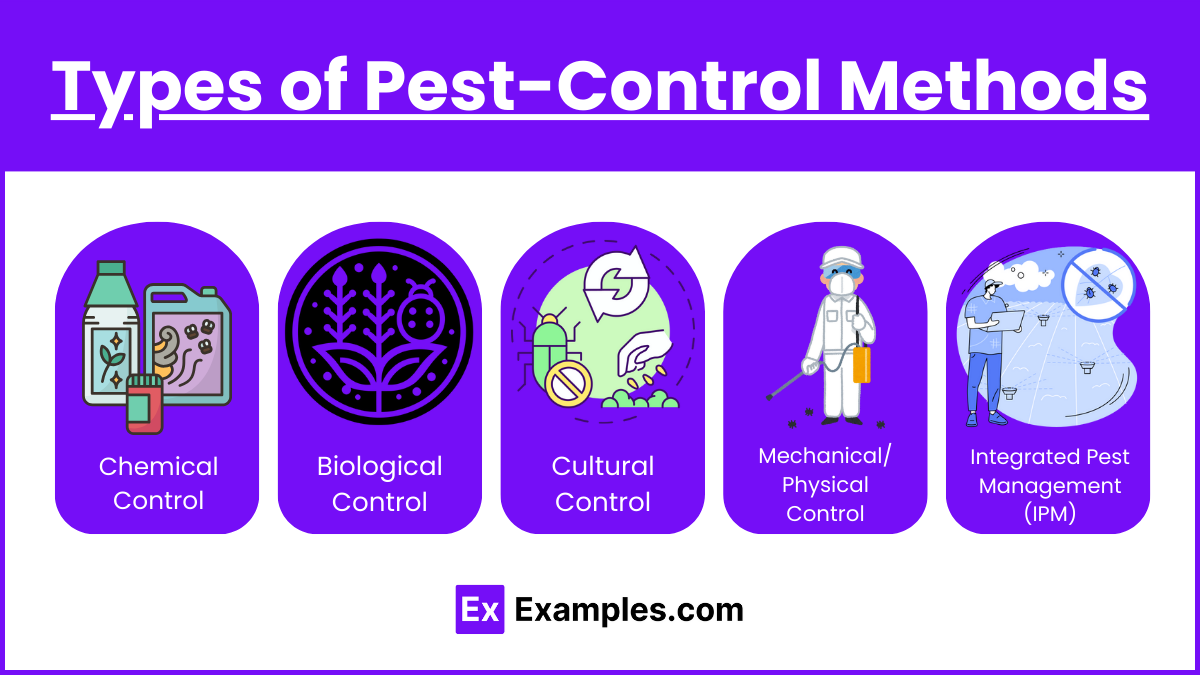How Pest Control can Save You Time, Stress, and Money.
Table of ContentsThe Definitive Guide to Pest ControlFascination About Pest ControlUnknown Facts About Pest ControlMore About Pest ControlAll about Pest Control
Limitations of Chemical Administration Be able to analyze bug troubles, identify if monitoring is essential, and make proper suggestions utilizing IPM techniques. Be familiar with various techniques of bug management - their benefits and restrictions.This phase reviews (IPM), a method that utilizes expertise about bugs and their, methods, nonchemical methods, and pesticides to handle insect problems. Extra info about IPM for particular plants is consisted of in phases that focus on those plants. Parasites in a yard or landscape might include insects and mites, weeds,, animals, and birds.
Bugs and weeds, nevertheless, play a function in the. After planting a yard or developing a yard, the natural process of plant sequence starts to reestablish and nonnative plants.
What we call "parasites" are component of a natural system at work. Only human beings consider particular types bugs when they happen where they are not wanted.
Getting The Pest Control To Work
Pests at risk to a pesticide were promptly eliminated, leaving resistant ones to breed and increase. It came to be clear that pesticides alone would certainly not address all insect troubles. Instead, overuse of pesticides created the development of resistant bugs. Scientists started to develop a brand-new approach to pest control. This brand-new method was defined as incorporated insect monitoring (IPM).
An IPM plan permits some degree of insects in the atmosphere. Parasites are much less likely to make it through a program that makes use of various methods of lowering their populations. Integrated parasite administration was very first recommended by entomologists due to the fact that pests were the initial team of bugs to show tough to handle with chemicals alone.
insect and host precisely. and consider financial or visual injury. A limit is the point at which action need to be taken. a therapy approach using mechanical, social, organic, or chemical controls, or a mix of these strategies. success of therapies. IPM has actually prolonged past pests to management of all pest populaces: weeds, condition microorganisms, and animals.
A Biased View of Pest Control
Management as opposed to removal of pests is the goal. An IPM strategy begins with a cautious evaluation of each pest infestation. Just then can one make a decision about the appropriate strategies necessary to suppress insect activities. The life process of the pest, feasible damages, natural adversaries, and results of weather condition, to name a few factors, are taken into consideration prior to a control strategy is executed - Pest Control.
Clover expanding in a lawn may be viewed as an unwanted weed, yet as a legume it is manufacturing nitrogen for the soil and the flowers are giving nectar to honey bees and other. Resistance for some weeds may belong to an IPM strategy. may be eating the fallen leaves of a plant, but when they are determined as the larvae of Eastern tiger swallowtail butterflies, their damages may be tolerated so we can take pleasure in the gorgeous butterfly.

The second most crucial tool in parasite monitoring is very early intervention. Existing and observant in the yard ensures early detection. Responding to issues swiftly, before they have time to increase, needs a much less remarkable intervention. The 3rd most crucial tool is recordkeeping; tracking what takes place in the garden enables a garden enthusiast to recognize patterns and make notified decisions.
Not known Facts About Pest Control
Lots of secure, practical, nonchemical approaches of plant defense and bug management may decrease or remove the demand to spray. Other approaches are most advantageous when utilized with chemicals. To apply monitoring techniques properly and to reduce losses, gardeners need to recognize the kinds of insects that attack plants and understand pest biology.

Conducting a dirt examination and applying only the advised amount of fertilizer and lime maximizes the advantage to the plant while reducing issues associated to extreme usage of plant food - Pest Control. Treatment the dirt with a number of inches of compost shields the plant in a number of ways: minimizing dirt water loss to evaporation, minimizing weed competitors, giving nutrients, and producing a suitable setting for earthworms and bacteria that keep the soil loosened for roots and break down natural material to release nutrients
If mulch touches the trunk, it can produce a method for voles, germs, and fungis to strike the plant. Do not make use of manure or compost that has not thoroughly decayed as a top clothing due to the fact that it can encourage unwanted parasites. Research study recommends that farming is destructive to dirt structure.
Not known Facts About Pest Control
If tilling is deemed essential, consider doing it in the fall when the life process of lots of parasites brings them near the surface. At the surface area, bugs come to be subjected to the weather in addition to birds browse around this web-site and other all-natural opponents. Autumn tilling can additionally damage bugs in plant their website deposits. Usage disease-free and insect-free certified seeds and plants if readily available.